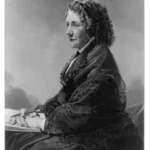 | |
Deacon Pitkin’s Farm | |
| Author | Harriet Beecher Stowe |
|---|---|
| Published |
1875
|
| Language | English |
| Nationality | American |
| Genre | Anti-Slavery Fiction, Social Commentary |
1875 Short Story
Deacon Pitkin’s Farm
Deacon Pitkin’s Farm is an English Anti-Slavery Fiction, Social Commentary short story by American writer Harriet Beecher Stowe. It was first published in 1875. Harriet Beecher Stowe's Deacon Pitkin's Farm (1875) is a Thanksgiving story about sacrifice: a son's willingness to give up his education for his family's sake. It was published in Stowe's collection of stories along with Betty's Bright Idea and The First Christmas in New England.
Deacon Pitkin’s Farm
by Harriet Beecher Stowe
CHAPTER I.
Miss Diana.
Thanksgiving was impending in the village of Mapleton on the 20th of November, 1825.
The Governor’s proclamation had been duly and truly read from the pulpit the Sunday before, to the great consternation of Miss Briskett, the ambulatory dressmaker, who declared confidentially to Deacon Pitkin’s wife that “she didn’t see nothin’ how she was goin’ to get through things–and there was Saphiry’s gown, and Miss Deacon Trowbridge’s cloak, and Lizy Jane’s new merino, not a stroke done on’t. The Governor ought to be ashamed of himself for hurrying matters so.”
It was a very rash step for Miss Briskett to go to the length of such a remark about the Governor, but the deacon’s wife was one of the few women who are nonconductors of indiscretion, and so the Governor never heard of it.
This particular Thanksgiving tide was marked in Mapleton by exceptionally charming weather. Once in a great while the inclement New England skies are taken with a remorseful twinge and forget to give their usual snap of September frost which generally bites off all the pretty flowers in so heart-breaking a way, and then you can have lovely times quite down through November.
It was so this year at Mapleton. Though the Thanksgiving proclamation had been read, and it was past the middle of November, yet marigolds and four-o’clocks were all ablaze in the gardens, and the golden rod and purple aster were blooming over the fields as if they were expecting to keep it up all winter.
It really is affecting, the jolly good heart with which these bright children of the rainbow flaunt and wave and dance and go on budding and blossoming in the very teeth and snarl of oncoming winter. An autumn golden rod or aster ought to be the symbol for pluck and courage, and might serve a New England crest as the broom flower did the old Plantagenets.
The trees round Mapleton were looking like gigantic tulip beds, and breaking every hour into new phantasmagoria of color; and the great elm that overshadowed the red Pitkin farm-house seemed like a dome of gold, and sent a yellow radiance through all the doors and windows as the dreamy autumn sunshine streamed through it.
The Pitkin elm was noted among the great trees of New England. Now and then Nature asserts herself and does something so astonishing and overpowering as actually to strike through the crust of human stupidity, and convince mankind that a tree is something greater than they are. As a general thing the human race has a stupid hatred of trees. They embrace every chance to cut them down. They have no idea of their fitness for anything but firewood or fruit bearing. But a great cathedral elm, with shadowy aisles of boughs, its choir of whispering winds and chanting birds, its hush and solemnity and majestic grandeur, actually conquers the dull human race and asserts its leave to be in a manner to which all hearts respond; and so the great elms of New England have got to be regarded with a sort of pride as among her very few crown jewels, and the Pitkin elm was one of these.
But wasn’t it a busy time in Mapleton! Busy is no word for it. Oh, the choppings, the poundings, the stoning of raisins, the projections of pies and puddings, the killing of turkeys–who can utter it? The very chip squirrels in the stone-walls, who have a family custom of making a market-basket of their mouths, were rushing about with chops incredibly distended, and their tails had an extra whisk of thanksgiving alertness. A squirrel’s Thanksgiving dinner is an affair of moment, mind you.
In the great roomy, clean kitchen of the deacon’s house might be seen the lithe, comely form of Diana Pitkin presiding over the roaring great oven which was to engulf the armies of pies and cakes which were in due course of preparation on the ample tables.
Of course you want to know who Diana Pitkin was. It was a general fact about this young lady that anybody who gave one look at her, whether at church or at home, always inquired at once with effusion, “Who is she?”– particularly if the inquirer was one of the masculine gender.
This was to be accounted for by the fact that Miss Diana presented to the first view of the gazer a dazzling combination of pink and white, a flashing pair of black eyes, a ripple of dimples about the prettiest little rosy mouth in the world, and a frequent somewhat saucy laugh, which showed a set of teeth like pearls. Add to this a quick wit, a generous though spicy temper, and a nimble tongue, and you will not wonder that Miss Diana was a marked character at Mapleton, and that the inquiry who she was was one of the most interesting facts of statistical information.
Well, she was Deacon Pitkin’s second cousin, and of course just in that convenient relationship to the Pitkin boys which has all the advantages of cousinship and none of the disadvantages as may be plain to an ordinary observer. For if Miss Diana wished to ride or row or dance with any of the Pitkin boys, why shouldn’t she? Were they not her cousins? But if any of these aforenamed young fellows advanced on the strength of these intimacies a presumptive claim to nearer relationship, why, then Diana was astonished–of course she had regarded them as her cousins! and she was sure she couldn’t think what they could be dreaming of–“A cousin is just like a brother, you know.”
This was just what James Pitkin did not believe in, and now as he is walking over hill and dale from Cambridge College to his father’s house he is gathering up a decided resolution to tell Diana that he is not and will not be to her as a brother–that she must be to him all or nothing. James is the brightest, the tallest, and, the Mapleton girls said, the handsomest of the Pitkin boys. He is a strong-hearted, generous, resolute fellow as ever undertook to walk thirty-five miles home to eat his Thanksgiving dinner.
We are not sure that Miss Diana is not thinking of him quite as much as he of her, as she stands there with the long kitchen shovel in one hand, and one plump white arm thrust into the oven, and her little head cocked on one side, her brows bent, and her rosy mouth pursed up with a solemn sense of the importance of her judgment as she is testing the heat of her oven.
Oh, Di, Di! for all you seem to have nothing on your mind but the responsibility for all those pumpkin pies and cranberry tarts, we wouldn’t venture a very large wager that you are not thinking about cousin James under it all at this very minute, and that all this pretty bustling housewifeliness owes its spice and flavor to the thought that James is coming to the Thanksgiving dinner.
To be sure if any one had told Di so, she would have flouted the very idea. Besides, she had privately informed Almira Sisson, her special particular confidante, that she knew Jim would come home from college full of conceit, and thinking that everybody must bow down to him, and for her part she meant to make him know his place. Of course Jim and she were good friends, etc., etc.
Oh, Di, Di! you silly, naughty girl, was it for this that you stood so long at your looking-glass last night, arranging how you would do your hair for the Thanksgiving night dance? Those killing bows which you deliberately fabricated and lodged like bright butterflies among the dark waves of your hair–who were you thinking of as you made and posed them? Lay your hand on your heart and say who to you has ever seemed the best, the truest, the bravest and kindest of your friends. But Di doesn’t trouble herself with such thoughts–she only cuts out saucy mottoes from the flaky white paste to lay on the red cranberry tarts, of which she makes a special one for each cousin. For there is Bill, the second eldest, who stays at home and helps work the farm. She knows that Bill worships her very shoe-tie, and obeys all her mandates with the faithful docility of a good Newfoundland dog, and Di says “she thinks everything of Bill–she likes Bill.” So she does Ed, who comes a year or two behind Bill, and is trembling out of bashful boyhood. So she does Rob and Ike and Pete and the whole healthy, ramping train who fill the Pitkin farm- house with a racket of boots and boys. So she has made every one a tart with his initial on it and a saucy motto or two, “just to keep them from being conceited, you know.”
All day she keeps busy by the side of the deacon’s wife–a delicate, thin, quiet little woman, with great thoughtful eyes and a step like a snowflake. New England had of old times, and has still, perhaps, in her farm-houses, these women who seem from year to year to develop in the spiritual sphere as the bodily form shrinks and fades. While the cheek grows thin and the form spare, the will-power grows daily stronger; though the outer man perish, the inner man is renewed day by day. The worn hand that seems so weak yet holds every thread and controls every movement of the most complex family life, and wonders are daily accomplished by the presence of a woman who seems little more than a spirit. The New England wife-mother was the one little jeweled pivot on which all the wheel work of the family moved.
“Well, haven’t we done a good day’s work, cousin?” says Diana, when ninety pies of every ilk–quince, apple, cranberry, pumpkin, and mince– have been all safely delivered from the oven and carried up into the great vacant chamber, where, ranged in rows and frozen solid, they are to last over New Year’s day! She adds, demonstratively clasping the little woman round the neck and leaning her bright cheek against her whitening hair, “Haven’t we been smart?” And the calm, thoughtful eyes turn lovingly upon her as Mary Pitkin puts her arm round her and answers:
“Yes, my daughter, you have done wonderfully. We couldn’t do without you!”
And Diana lifts her head and laughs. She likes petting and praising as a cat likes being stroked; but, for all that, the little puss has her claws and a sly notion of using them.
CHAPTER II.
Biah Carter
It was in the flush and glow of a gorgeous sunset that you might have seen the dark form of the Pitkin farm-house rising on a green hill against the orange sky.
The red house, with its overhanging canopy of elm, stood out like an old missal picture done on a gold ground.
Through the glimmer of the yellow twilight might be seen the stacks of dry corn-stalks and heaps of golden pumpkins in the neighboring fields, from which the slow oxen were bringing home a cart well laden with farm produce.
It was the hour before supper time, and Biah Carter, the deacon’s hired man, was leaning against a fence, waiting for his evening meal; indulging the while in a stream of conversational wisdom which seemed to flow all the more freely from having been dammed up through the labors of the day.
Biah was, in those far distant times of simplicity a “mute inglorious” newspaper man. Newspapers in those days were as rare and unheard of as steam cars or the telegraph, but Biah had within him all the making of a thriving modern reporter, and no paper to use it on. He was a walking biographical and statistical dictionary of all the affairs of the good folks of Mapleton. He knew every piece of furniture in their houses, and what they gave for it; every foot of land, and what it was worth; every ox, ass and sheep; every man, woman and child in town. And Biah could give pretty shrewd character pictures also, and whoever wanted to inform himself of the status of any person or thing in Mapleton would have done well to have turned the faucet of Biah’s stream of talk, and watched it respectfully as it came, for it was commonly conceded that what Biah Carter didn’t know about Mapleton was hardly worth knowing.
“Putty piece o’ property, this ‘ere farm,” he said, surveying the scene around him with the air of a connoisseur. “None o’ yer stun pastur land where the sheep can’t get their noses down through the rocks without a file to sharpen ’em! Deacon Pitkin did a putty fair stroke o’ business when he swapped off his old place for this ‘ere. That are old place was all swamp land and stun pastur; wa’n’t good for raisin’ nothin’ but juniper bushes and bull frogs. But I tell _yeu_” preceded Biah, with a shrewd wink, “that are mortgage pinches the deacon; works him like a dose of aloes and picry, it does. Deacon fairly gets lean on’t.”
“Why,” said Abner Jenks, a stolid plow boy to whom this stream of remark was addressed; “this ‘ere place ain’t mortgaged, is it? Du tell, naow!”
“Why, yis; don’t ye know that are? Why there’s risin’ two thousand dollars due on this ‘ere farm, and if the deacon don’t scratch for it and pay up squar to the minit, old Squire Norcross’ll foreclose on him. Old squire hain’t no bowels, I tell yeu, and the deacon knows he hain’t: and I tell you it keeps the deacon dancin’ lively as corn on a hot shovel.”
“The deacon’s a master hand to work,” said Abner; “so’s the boys.”
“Wai, yis, the deacon is,” said Biah, turning contemplatively to the farmhouse; “there ain’t a crittur in that are house that there ain’t the most work got out of ’em that ken be, down to Jed and Sam, the little uns. They work like tigers, every soul of ’em, from four o’clock in she morning’ as long as they can see, and Mis’ Pitkin she works all the evening–woman’s work ain’t never done, they say.”
“She’s a good woman, Mis’ Pitkin is,” said Abner, “and she’s a smart worker.”
In this phrase Abner solemnly expressed his highest ideal of a human being.
“Smart ain’t no word for ‘t,” said Biah, with alertness. “Declar for ‘t, the grit o’ that are woman beats me. Had eight children right along in a string ‘thout stoppin’, done all her own work, never kep’ no gal nor nothin’; allers up and dressed; allers to meetin’ Sunday, and to the prayer-meetin’ weekly, and never stops workin’: when ‘tan’t one thing it’s another–cookin’, washin’, ironin’, making butter and cheese, and ‘tween spells cuttin’ and sewin’, and if she ain’t doin’ that, why, she’s braidin’ straw to sell to the store or knitting–she’s the perpetual motion ready found, Mis’ Pitkin is.”
“Want ter know,” said the auditor, as a sort of musical rest in this monotone of talk. “Ain’t she smart, though!”
“Smart! Well, I should think she was. She’s over and into everything that’s goin’ on in that house. The deacon wouldn’t know himself without her; nor wouldn’t none of them boys, they just live out of her; she kind o’ keeps ’em all up.”
“Wal, she ain’t a hefty woman, naow,” said the interlocutor, who seemed to be possessed by a dim idea that worth must be weighed by the pound.
“Law bless you, no! She’s a little crittur; nothin’ to look to, but every bit in her is _live_. She looks pale, kind o’ slips round still like moonshine, but where anything’s to be done, there Mis’ Pitkin is; and her hand allers goes to the right spot, and things is done afore ye know it. That are woman’s kind o’ still; she’ll slip off and be gone to heaven some day afore folks know it. There comes the deacon and Jim over the hill. Jim walked home from college day ‘fore yesterday, and turned right in to-day to help get in the taters, workin’ right along. Deacon was awful grouty.”
“What was the matter o’ the deacon?”
“Oh, the mortgage kind o’ works him. The time to pay comes round putty soon, and the deacon’s face allers goes down long as yer arm. ‘Tis a putty tight pull havin’ Jim in college, losin’ his work and havin’ term bills and things to pay. Them are college folks charges _up_, I tell you. I seen it works the deacon, I heard him a-jawin’ Jim ’bout it.”
“What made Jim go to college?” said Abner with slow wonder in his heavy face.
“Oh, he allers was sot on eddication, and Mis’ Pitkin she’s sot on’t, too, in her softly way, and softly women is them that giner’lly carries their p’ints, fust or last.
“But _there’s_ one that _ain’t_ softly!” Biah suddenly continued, as the vision of a black-haired, bright-eyed girl suddenly stepped forth from the doorway, and stood shading her face with her hands, looking towards the sunset. The evening light lit up a jaunty spray of golden rod that she had wreathed in her wavy hair, and gave a glow to the rounded outlines of her handsome form. “There’s a sparkler for you! And no saint, neither!” was Biah’s comment. “That crittur has got more prances and capers in her than any three-year-old filly I knows on. He’ll be cunning that ever gets a bridle on her.”
“Some says she’s going to hev Jim Pitkin, and some says it’s Bill,” said Abner, delighted to be able to add his mite of gossip to the stream while it was flowing.
“She’s sweet on Jim while he’s round, and she’s sweet on Bill when Jim’s up to college, and between um she gets took round to everything that going. She gives one a word over one shoulder, and one over t’other, and if the Lord above knows what’s in that gal’s mind or what she’s up to, he knows more than I do, or she either, else I lose my bet.”
Biah made this admission with a firmness that might have been a model to theologians or philosophers in general. There was a point, it appeared, where he was not omniscient. His universal statistical knowledge had a limit.
CHAPTER III.
The Shadow
There is no moment of life, however festive, that does not involve the near presence of a possible tragedy. When the concert of life is playing the gayest and airiest music, it requires only the change of a little flat or sharp to modulate into the minor key.
There seemed at first glance only the elements of joyousness and gayety in the surroundings at the Pitkin farm. Thanksgiving was come–the family, healthy, rosy, and noisy, were all under the one roof-tree. There was energy, youth, intelligence, beauty, a pair of lovers on the eve of betrothal–just in that misty, golden twilight that precedes the full sunrise of avowed and accepted love–and yet behind it all was walking with stealthy step the shadow of a coming sorrow.
“What in the world ails James?” said Diana as she retreated from the door and surveyed him at a distance from her chamber window. His face was like a landscape over which a thunder-cloud has drifted, and he walked beside his father with a peculiar air of proud displeasure and repression.
At that moment the young man was struggling with the bitterest sorrow that can befall youth–the breaking up of his life-purpose. He had just come to a decision to sacrifice his hopes of education, his man’s ambition, his love, his home and family, and become a wanderer on the face of the earth. How this befell requires a sketch of character.
Deacon Silas Pitkin was a fair specimen of a class of men not uncommon in New England–men too sensitive for the severe physical conditions of New England life, and therefore both suffering and inflicting suffering. He was a man of the finest moral traits, of incorruptible probity, of scrupulous honor, of an exacting conscientiousness, and of a sincere piety. But he had begun life with nothing; his whole standing in the world had been gained inch by inch by the most unremitting economy and self-denial, and he was a man of little capacity for hope, of whom it was said, in popular phraseology, that he “took things hard.” He was never sanguine of good, always expectant of evil, and seemed to view life like a sentinel forbidden to sleep and constantly under arms.
For such a man to be harassed by a mortgage upon his homestead was a steady wear and drain upon his vitality. There were times when a positive horror of darkness came down upon him–when his wife’s untroubled, patient hopefulness seemed to him like recklessness, when the smallest item of expense was an intolerable burden, and the very daily bread of life was full of bitterness; and when these paroxysms were upon him, one of the heaviest of his burdens was the support of his son in college. It was true that he was proud of his son’s talents and sympathized with his love for learning–he had to the full that sense of the value of education which is the very vital force of the New England mind–and in an hour when things looked brighter to him he had given his consent to the scheme of a college education freely.
James was industrious, frugal, energetic, and had engaged to pay the most of his own expenses by teaching in the long winter vacations. But unfortunately this year the Mapleton Academy, which had been promised to him for the winter term, had been taken away by a little maneuver of local politics and given to another, thus leaving him without resource. This disappointment, coming just at the time when the yearly interest upon the mortgage was due, had brought upon his father one of those paroxysms of helpless gloom and discouragement in which the very world itself seemed clothed in sack-cloth.
From the time that he heard the Academy was gone, Deacon Silas lay awake nights in the blackness of darkness. “We shall all go to the poorhouse together–that’s where it will end,” he said, as he tossed restlessly in the dark.
“Oh no, no, my dear,” said his wife, with those serene eyes that had looked through so many gloomy hours; “we must cast our care on God.”
“It’s easy for women to talk. You don’t have the interest money to pay, you are perfectly reckless of expense. Nothing would do but James must go to college, and now see what it’s bringing us to!”
“Why, father, I thought you yourself were in favor of it.”
“Well, I did wrong then. You persuaded me into it. I’d no business to have listened to you and Jim and got all this load on my shoulders.”
Yet Mary Pitkin knew in her own calm, clear head that she had not been reckless of expense. The yearly interest money was ever before her, and her own incessant toils had wrought no small portion of what was needed to pay it. Her butter at the store commanded the very highest price, her straw braiding sold for a little more than that of any other hand, and she had calculated all the returns so exactly that she felt sure that the interest money for that year was safe. She had seen her husband pass through this nervous crisis many times before, and she had learned to be blamed in silence, for she was a woman out of whom all selfness had long since died, leaving only the tender pity of the nurse and the consoler. Her soul rested on her Saviour, the one ever-present, inseparable friend; and when it did no good to speak to her husband, she spoke to her God for him, and so was peaceful and peace-giving.
Even her husband himself felt her strengthening, rest-giving power, and for this reason he bore down on her with the burden of all his tremors and his cares; for while he disputed, he yet believed her, and rested upon her with an utter helpless trust, as the good angel of his house. Had _she_ for a moment given way to apprehension, had _her_ step been a thought less firm, her eye less peaceful, then indeed the world itself would have seemed to be sinking under his feet. Meanwhile she was to him that kind of relief which we derive from a person to whom we may say everything without a fear of its harming them. He felt quite sure that, say what he would, Mary would always be hopeful and courageous; and he felt some secret idea that his own gloomy forebodings were of service in restricting and sobering what seemed to him her too sanguine nature. He blindly reverenced, without ability fully to comprehend, her exalted religious fervor and the quietude of soul that it brought. But he did not know through how many silent conflicts, how many prayers, how many tears, how many hopes resigned and sorrows welcomed, she had come into that last refuge of sorrowful souls, that immovable peace when all life’s anguish ceases and the will of God becomes the final rest.
But, unhappily for this present crisis, there was, as there often is in family life, just enough of the father’s nature in the son to bring them into collision with each other. James had the same nervously anxious nature, the same intense feeling of responsibility, the same tendency towards morbid earnestness; and on that day there had come collision.
His father had poured forth upon him his fears and apprehensions in a manner which implied a censure on his son, as being willing to accept a life of scholarly ease while his father and mother were, as he expressed it, “working their lives away.”
“But I tell you, father, as God is my witness, I _mean_ to pay all; you shall not suffer; interest and principal–all that my work would bring–I engage to pay back.”
“You!–you’ll never have anything! You’ll be a poor man as long as you live. Lost the Academy this Fall–that tells the story!”
“But, father, it wasn’t my fault that I lost the Academy.”
“It’s no matter whose fault it was–that’s neither here nor there–you lost it, and here you are with the vacation before you and nothing to do! There’s your mother, she’s working herself to death; she never gets any rest. I expect she’ll go off in a consumption one of these days.”
“There, there, father! that’s enough! Please don’t say any more. You’ll see I _will_ find something to do!”
There are words spoken at times in life that do not sound bitter though they come from a pitiable depth of anguish, and as James turned from his father he had taken a resolution that convulsed him with pain; his strong arms quivered with the repressed agony, and he hastily sought a distant part of the field, and began cutting and stacking corn-stalks with a nervous energy.
“Why, ye work like thunder!” was Biah’s comment. “Book l’arnin’ hain’t spiled ye yet; your arms are good for suthin’.”
“Yes, my arms are good for something, and I’ll use them for something,” said Jim.
There was raging a tempest in his soul. For a young fellow of a Puritan education in those days to be angry with his father was somewhat that seemed to him as awful a sacrilege as to be angry with his God, and yet he felt that his father had been bitterly, cruelly unjust towards him. He had driven economy to the most stringent extremes; he had avoided the intimacy of his class fellows, lest he should be drawn into needless expenses; he had borne with shabby clothing and mean fare among better dressed and richer associates, and been willing to bear it. He had studied faithfully, unremittingly, for two years, but at the moment he turned from his father the throb that wrung his heart was the giving up of all. He had in his pocket a letter from his townsman and schoolmate, Sam Allen, mate of an East Indiaman just fitting out at Salem, and it said:
“We are going to sail with a picked crew, and we want one just such a fellow as you for third mate. Come along, and you can go right up, and your college mathematics will be all the better for us. Come right off, and your berth will be ready, and away for round the world!”
Here, to be sure, was immediate position–wages–employment–freedom from the intolerable burden of dependence; but it was accepted at the sacrifice of all his life’s hopes. True, that in those days the experiment of a sea-faring life had often, even in instances which he recalled, brought forth fortune and an ability to settle down in peaceful competence in after life. But there was Diana. Would she wait for him? Encircled on all sides with lovers, would she keep faith with an adventurer gone for an indefinite quest? The desponding, self-distrusting side of his nature said, “No. Why should she?” Then, to go was to give up Diana–to make up his mind to have her belong to some other. Then there was his mother. An unutterable reverential pathos always to him encircled the idea of his mother. Her life to him seemed a hard one. From the outside, as he viewed it, it was all self-sacrifice and renunciation. Yet he knew that she had set her heart on an education for him, as much as it could be set on anything earthly. He was her pride, her hope; and just now that very thought was full of bitterness. There was no help for it; he must not let her work herself to death for him; he would make the household vessel lighter by the throwing himself into the sea, to sink or swim as might happen; and then, perhaps, he might come back with money to help them all.
All this was what was surging and boiling in his mind when he came in from his work to the supper that night.
CHAPTER IV.
The Good-By
Diana Pitkin was like some of the fruits of her native hills, full of juices which tend to sweetness in maturity, but which when not quite ripe have a pretty decided dash of sharpness. There are grapes that require a frost to ripen them, and Diana was somewhat akin to these.
She was a mettlesome, warm-blooded creature, full of the energy and audacity of youth, to whom as yet life was only a frolic and a play spell. Work never tired her. She ate heartily, slept peacefully, went to bed laughing, and got up in a merry humor in the morning. Diana’s laugh was as early a note as the song of birds. Such a nature is not at first sympathetic. It has in it some of the unconscious cruelty which belongs to nature itself, whose sunshine never pales at human trouble. Eyes that have never wept cannot comprehend sorrow. Moreover, a lively girl of eighteen, looking at life out of eyes which bewilder others with their brightness, does not always see the world truly, and is sometimes judged to be heartless when she is only immature.
Nothing was further from Diana’s thoughts than that any grave trouble was overhanging her lover’s mind–for her lover she very well knew that James was, and she had arranged beforehand to herself very pretty little comedies of life, to be duly enacted in the long vacation, in which James was to appear as the suitor, and she, not too soon nor with too much eagerness, was at last to acknowledge to him how much he was to her. But meanwhile he was not to be too presumptuous. It was not set down in the cards that she should be too gracious or make his way too easy. When, therefore, he brushed by her hastily, on entering the house, with a flushed cheek and frowning brow, and gave no glance of admiration at the pretty toilet she had found time to make, she was slightly indignant. She was as ignorant of the pang which went like an arrow through his heart at the sight of her as the bobolink which whirrs and chitters and tweedles over a grave.
She turned away and commenced a kitten-like frolic with Bill, who was always only too happy to second any of her motions, and readily promised that after supper she would go with him a walk of half a mile over to a neighbor’s, where was a corn-husking. A great golden lamp of a harvest moon was already coming up in the fading flush of the evening sky, and she promised herself much amusement in watching the result of her maneuver on James.
“He’ll see at any rate that I am not waiting his beck and call. Next time, if he wants my company he can ask for it in season. I’m not going to indulge him in sulks, not I. These college fellows worry over books till they hurt their digestion, and then have the blues and look as if the world was coming to an end.” And Diana went to the looking-glass and rearranged the spray of golden-rod in her hair and nodded at herself defiantly, and then turned to help get on the supper.
The Pitkin folk that night sat down to an ample feast, over which the impending Thanksgiving shed its hilarity. There was not only the inevitable great pewter platter, scoured to silver brightness, in the center of the table, and piled with solid masses of boiled beef, pork, cabbage and all sorts of vegetables, and the equally inevitable smoking loaf of rye and Indian bread, to accompany the pot of baked pork and beans, but there were specimens of all the newly-made Thanksgiving pies filling every available space on the table. Diana set special value on herself as a pie artist, and she had taxed her ingenuity this year to invent new varieties, which were received with bursts of applause by the boys. These sat down to the table in democratic equality,–Biah Carter and Abner with all the sons of the family, old and young, each eager, hungry and noisy; and over all, with moonlight calmness and steadiness, Mary Pitkin ruled and presided, dispensing to each his portion







